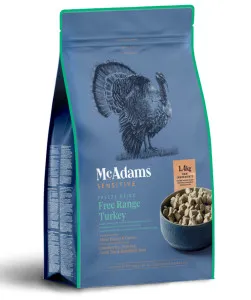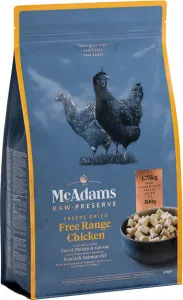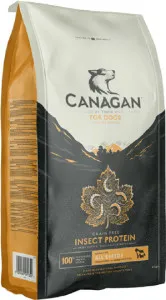Optimal Diets for Jack Russell Terriers: A Complete Guide
Jack Russell Terriers are energetic, intelligent, and full of personality. These small but mighty dogs require a diet that matches their high activity levels and unique nutritional needs. Feeding your Jack Russell the right food can help maintain their energy, support their overall health, and prevent common health issues. In this guide, we’ll explore the best diets for Jack Russell Terriers, including what to look for in dog food, portion sizes, and tips for maintaining a healthy weight.
Understanding the Nutritional Needs of Jack Russell Terriers
Jack Russell Terriers are known for their boundless energy and agility. To keep up with their active lifestyle, they need a diet rich in high-quality protein, healthy fats, and essential vitamins and minerals. Here’s a breakdown of their key nutritional requirements:
- Protein: As active dogs, Jack Russells need a diet high in protein to support muscle development and repair. Look for dog food with real meat as the first ingredient, such as chicken, beef, or fish.
- Fats: Healthy fats, like omega-3 and omega-6 fatty acids, are essential for maintaining a shiny coat, healthy skin, and overall energy levels. Sources like salmon oil or flaxseed are excellent additions to their diet.
- Carbohydrates: While carbs aren’t the primary focus, they provide a quick source of energy. Opt for complex carbs like sweet potatoes, brown rice, or oats.
- Vitamins and Minerals: A balanced diet should include essential vitamins (A, D, E) and minerals (calcium, phosphorus) to support bone health, immune function, and overall well-being.
- Look for High-Quality Ingredients: Avoid dog foods with fillers like corn, soy, or artificial preservatives. Instead, opt for brands that prioritize whole, natural ingredients.
- Consider Life Stage: Puppies, adults, and senior dogs have different nutritional needs. Choose a formula specifically designed for your Jack Russell’s life stage.
- Check for AAFCO Approval: The Association of American Feed Control Officials (AAFCO) sets standards for pet food. Look for a statement on the packaging indicating the food meets AAFCO guidelines.
- Wet vs. Dry Food: Both wet and dry food have their benefits. Dry kibble is convenient and helps with dental health, while wet food can be more palatable and hydrating. Some owners choose to mix both for variety.
- Follow Feeding Guidelines: Most dog food brands provide feeding guidelines based on your dog’s weight and age. Use these as a starting point and adjust as needed.
- Monitor Weight: Regularly check your Jack Russell’s weight and body condition. You should be able to feel their ribs without seeing them. If they’re gaining weight, reduce portion sizes slightly.
- Divide Meals: Instead of feeding one large meal, divide their daily food intake into two or three smaller meals. This helps prevent overeating and supports digestion.
- Fresh Fruits and Vegetables: Many dogs enjoy small pieces of carrots, apples, or green beans. These are low in calories and packed with nutrients.
- Lean Meats: Cooked chicken or turkey (without seasoning) can be a tasty and protein-rich treat.
- Commercial Treats: Look for treats made with natural ingredients and no artificial additives. Avoid treats high in sugar or fat.
- Food Allergies: Some Jack Russells may develop allergies to certain ingredients, such as chicken, beef, or grains. Symptoms include itching, ear infections, and digestive issues. If you suspect an allergy, switch to a hypoallergenic diet and consult your vet.
- Obesity: Due to their small size, even a little extra weight can be harmful. Stick to portion-controlled meals and ensure your dog gets plenty of exercise.
- Dental Problems: Small breeds like Jack Russells are prone to dental issues. Incorporate dental chews or brush their teeth regularly to maintain oral health.
- Consult a Veterinarian: Before switching to a homemade diet, consult your vet or a canine nutritionist to ensure the meals are balanced.
- Include a Variety of Ingredients: A balanced homemade diet should include protein, carbohydrates, fats, and essential vitamins and minerals. Rotate ingredients to provide variety.
- Avoid Harmful Foods: Some human foods, like chocolate, onions, and grapes, are toxic to dogs. Always research before adding new ingredients to your dog’s diet.
If you’re unsure about the nutritional content of your dog’s food, consider using a Pet Food Analyzer to evaluate the ingredients and ensure your Jack Russell is getting the nutrients they need.
Choosing the Right Dog Food for Your Jack Russell
With so many dog food options available, it can be overwhelming to choose the best one for your Jack Russell Terrier. Here are some tips to help you make an informed decision:
If you’re still unsure, consult your veterinarian or use a Pet Food Analyzer to compare different brands and formulas.
Portion Control and Feeding Schedule
Jack Russell Terriers are prone to obesity if overfed, so portion control is crucial. Here’s how to determine the right amount of food for your dog:
Remember, every dog is unique. Factors like activity level, metabolism, and health conditions can affect how much your Jack Russell needs to eat. If you’re unsure, consult your vet for personalized advice.
Healthy Treats and Snacks
Treats are a great way to reward your Jack Russell, but they should be given in moderation. Here are some healthy treat options:
Recommended Products

McAdams Freeze Dried Free Range Turkey is an excellent choice for optimal diets for jack russell terriers. This dog food contains Boneless Free Range Turkey 86.5% and other high-quality ingredients that promote overall health.

McAdams Freeze Dried Free Range Chicken is an excellent choice for optimal diets for jack russell terriers. This dog food contains Boneless Free Range Chicken 86% and other high-quality ingredients that promote overall health.

Canagan Insect is an excellent choice for optimal diets for jack russell terriers. This dog food contains Freshly Prepared Insects (27%)* and other high-quality ingredients that promote overall health.
Always monitor your dog’s treat intake to ensure it doesn’t exceed 10% of their daily caloric intake. For more tips on choosing healthy treats, check out our Pet Food Analyzer .
Common Dietary Issues in Jack Russell Terriers
Like all breeds, Jack Russells can be prone to certain dietary issues. Here are some common problems and how to address them:
If you notice any unusual symptoms or changes in your dog’s behavior, consult your veterinarian for a thorough evaluation.
Homemade Diets for Jack Russell Terriers
Some owners prefer to prepare homemade meals for their dogs. While this can be a great option, it’s important to ensure the diet is balanced and meets all nutritional requirements. Here are some tips for creating a homemade diet:
If you’re considering a homemade diet, use a Pet Food Analyzer to evaluate the nutritional content and ensure your Jack Russell is getting everything they need.
Final Thoughts on Feeding Your Jack Russell Terrier
Feeding your Jack Russell Terrier a balanced, nutritious diet is one of the best ways to support their health and happiness. By choosing high-quality dog food, monitoring portion sizes, and incorporating healthy treats, you can help your dog thrive. Remember, every dog is unique, so it’s important to tailor their diet to their specific needs.
For more tips on choosing the best food for your Jack Russell, visit our Pet Food Analyzer . This tool can help you compare different brands, evaluate ingredients, and make informed decisions about your dog’s nutrition. Your Jack Russell deserves the best, and with the right diet, they’ll be ready to take on the world with their signature energy and enthusiasm!
